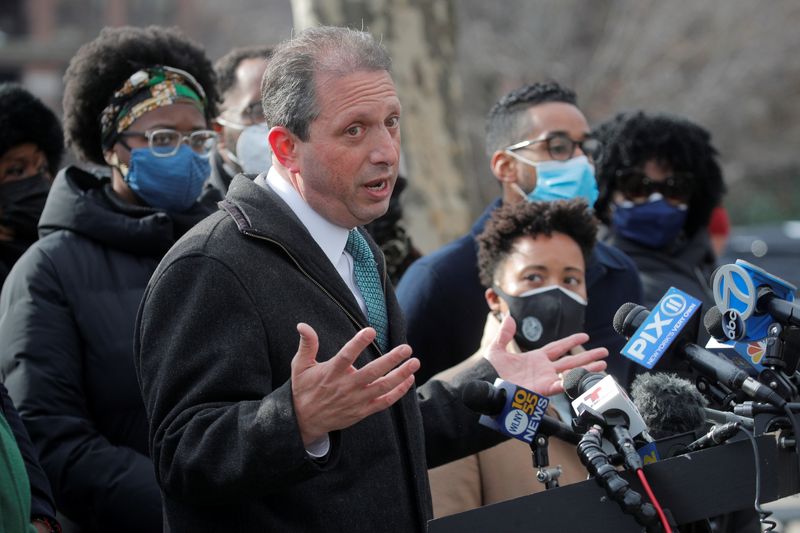BOSTON (Reuters) – New York City Comptroller Brad Lander on Sunday said he plans to specify Russian assets for city pension boards to “consider for divestment” in response to Russia’s invasion of Ukraine.
In a statement emailed by a spokesperson, Lander said he will specify the assets after reviews, and said final decisions on asset sales are made by the five boards that oversee city pension assets.
The system had roughly $271 million in Russian assets as of Feb. 23, the spokesperson said.
“Russia’s aggression in Ukraine merits the swift global action” now beginning to cut off Russian President Vladimir Putin and his supporters from the global financial system, Lander said in the statement.
“We are watching developments in Ukraine with great concern and following responses by fellow institutional investors closely,” he said.
The comments follow sharper steps by some European companies and investors to move away from Russia in the wake of Putin’s war on Ukraine. Norway’s $1.3 trillion sovereign wealth fund, the world’s largest, will sell its Russian assets, the Norwegian prime minister said on Sunday.
Russia calls its actions in Ukraine a “special operation” that it says is not designed to occupy territory.
With $275 billion in total assets, the New York City pension system overseen by Lander is one of the largest in the United States, and his comments go the furthest of a major public investment leader to date.
But like New York City, most other large systems report to boards that could take time to decide on any action.
Officials for the California Public Employees’ Retirement System, and for the California State Teachers’ Retirement System, did not respond to questions on Sunday afternoon.
New York State Comptroller Thomas DiNapoli, who oversees separate pension assets, said on Sunday in a statement sent by a spokesperson that: “We are closely monitoring the situation in Russia and the Ukraine, but our exposure is minimal. We will follow any federal restrictions for investors as we assess how it impacts our investments.”
(Reporting by Ross Kerber; Editing by Kim Coghill and Kenneth Maxwell)






















